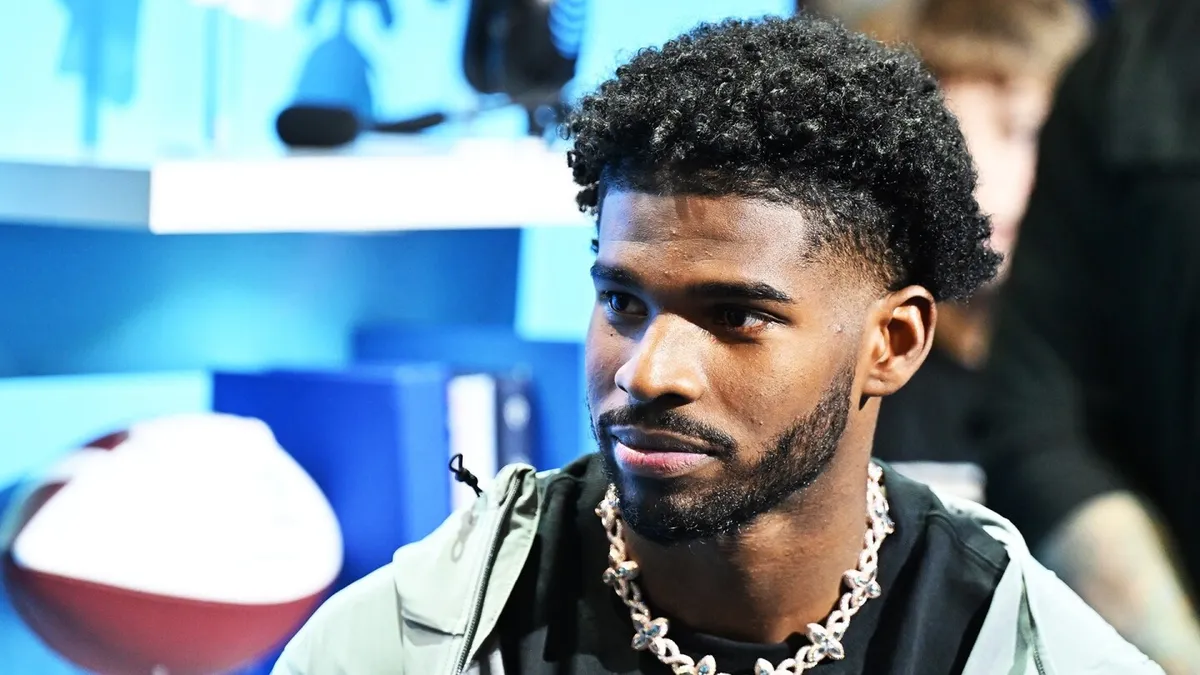
As the excitement surrounding Shedeur Sanders’ draft weekend begins to settle, new details are emerging about the mixed feelings various NFL teams had towards the talented quarterback. Notably, Boomer Esiason, a former NFL quarterback and respected analyst, shared his insights during a recent broadcast on WFAN, shedding light on the attitudes of team executives.
In the broadcast, Esiason remarked on Sanders' confidence, stating, "When you listen to this kid talk, right prior or at the Combine, about how if you want a new culture in your locker room, I’m the guy to do that, I can turn it around, he’s very high on himself.” Esiason argued that this self-assuredness might have been off-putting to many coaches and general managers in the league.
According to Esiason, multiple NFL personnel expressed their disapproval of Sanders’ demeanor. He revealed, "They didn’t even have him on their board. They took him off because the owner said, ‘Take him off, I don’t want that guy. I don’t want this entitled person on our team,’ and I don’t blame them.” This statement highlights a significant divide in how teams perceive talent versus attitude.
The controversy surrounding Sanders raises questions about the role of anonymous sources in sports journalism. Esiason's comments provided specific insights into the decisions made by NFL owners, contrasting with the often vague and unsubstantiated claims seen on social media platforms. The distinction is important, as it points to a deeper narrative about accountability in reporting.
One of the pivotal issues that emerged from the discussion is the perception that Shedeur Sanders did not take the pre-draft process seriously. His father, Deion Sanders, had a similar approach, notably declining to participate in a lengthy test with the New York Giants. While Deion's extraordinary talent allowed him to bypass certain formalities, Shedeur’s performance did not match that level of excellence, leading to potential repercussions in the draft.
For athletes who are not guaranteed top draft positions, neglecting the pre-draft process can have significant consequences. This reality became evident as Shedeur fell to a draft position that many believe does not reflect his true talent.
In a moment of introspection, Shedeur was asked if he had any regrets about his pre-draft journey. He responded thoughtfully, "Do I have any regrets? I feel like in life it’s always a way I can improve." This acknowledgment of room for growth suggests a willingness to learn from past experiences, which could be crucial as he navigates his professional career.
The pivotal question now is whether Shedeur Sanders will take the lessons from this experience to heart. His future success may depend on whether he chooses to embrace accountability for the outcomes of the draft and adjusts his approach accordingly. If he can channel any resentment into motivation, he may prove the doubters wrong and establish himself in the league.
Ultimately, the path forward for Shedeur Sanders lies in his hands. By recognizing his responsibilities and committing to improvement, he can transform the narrative surrounding his draft experience into a story of resilience and triumph.